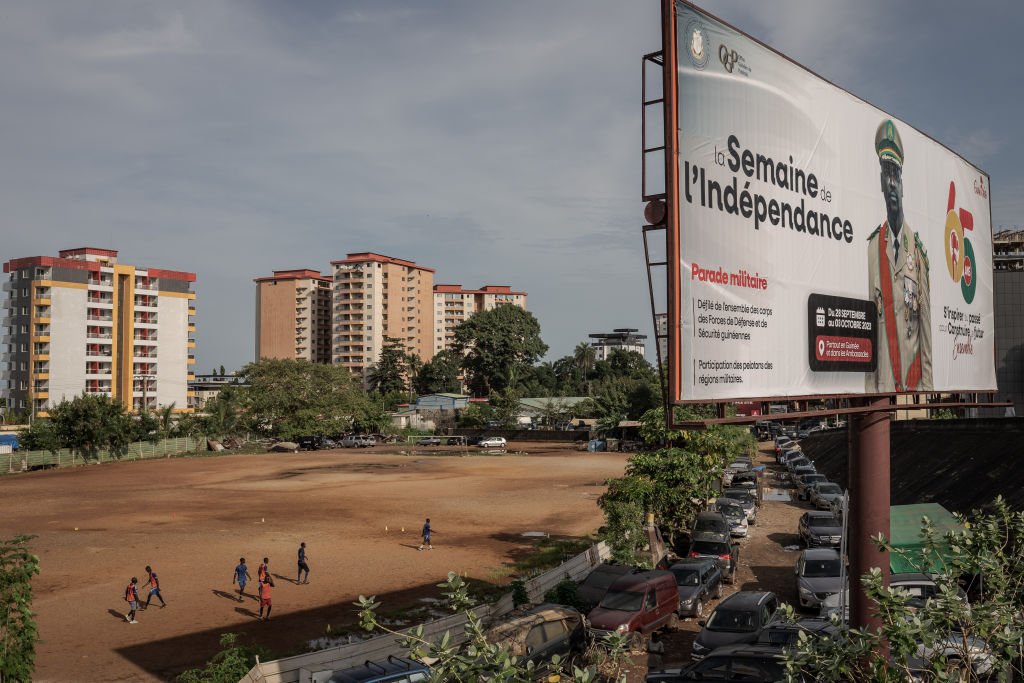
Introduction
On 19th February 2024, the military dissolved the transitional government, froze the bank accounts of government officials and ordered their passports to be seized. The junta gave no reason for the dissolution. Subsequently, on 27th February, Mamadou Oury Bah became the new Prime Minister, and the government postponed the elections to 2025.
Political parties and civil society organisations view this move as an attempt to delay civilian rule and disregard the previously agreed-upon December 2024 deadline for elections. Civil society has threatened to protest if the authorities fail to hand over power by the end of 2024. Political parties also demanded an electoral timetable and indicated they would not recognise the junta after December 2024.
Guinea: opposition placed "under observation" and 53 parties dissolved https://t.co/POglQz9qud
— africanews (@africanews) November 1, 2024
Association
Political groups dissolved or suspended
On 29th October 2024, the authorities in Guinea announced that 53 political parties were to be suspended or dissolved. Another 67 political groups or formations will be scrutinised over the following three months, by many seen as an attempt to suppress political dissent ahead of the elections.
Guinée: 100 jours après l’enlèvement de deux de ses cadres, le FNDC dit «craindre vraiment le pire» https://t.co/a5RUvw2fJN pic.twitter.com/LWBEfXjEr0
— RFI Afrique (@RFIAfrique) October 17, 2024
Enforced disappearance of HRDs
17th October 2024 marked 100 days since two activists with the Guinean opposition coalition National Front for the Defense of the Constitution (Front National pour la Défense de la Constitution, FNDC) disappeared. Oumar Sylla, known as Foniké Mengué, and Mamadou Billo Bah remain missing, as the authorities have not revealed their exact whereabouts since they were detained on 9th July and taken to an island off the coast.
Expression
Media authority revokes licenses
On 6th March 2024, the newly appointed Prime Minister, Amadou Oury Bah, held a meeting at Palais de la Colombe with representatives from media outlets and associations to address the challenges facing the sector. This meeting was welcomed by the media; however, on 21st May 2024, Guinea’s Ministry of Information and Communication released a statement in which it withdrew the licenses of six media: FIM FM, Djoma FM, Djoma TV, Espace FM, Espace TV and Sweet FM. The outlets were allegedly not complying with regulations, according to the statement. The Committee to Protect Journalists called on the military government to reinstate the licenses and end the censorship. On 27th May 2024, the press union in Guinea threatened a nationwide protest over the government’s decision.
Journalist threatened
The general secretary of the Union of Press Professionals of Guinea (SPPG), Sékou Jamal Pendessa, has received several threats in retaliation for his activism against the government. The Media Foundation for West Africa published a statement on 4th June 2024, supporting Pendessa and his lawyer’s decision to address the threats and harassment through legal means.
Inquisiteur news site and journalist suspended
On 17th April, the High Authority for Communication (HAC), Guinea's media regulator, suspended the private news website Inquisiteur and banned journalist Mamoudou Babila Keita from reporting for a six-month period. The ban occurred after an Inquisiteur investigation into allegations of corruption in public procurement contracts.
Journalist attacked while filming
On 18th May 2024, Kerfala Soumah, a journalist with Gnouma FM in Guinea was attacked by Aly Manden Mansa Keita, the mayor of Sanoyah, a municipality in the capital Conakry. The mayor grabbed the journalist's phone and damaged his headphones, accusing him of being a spy, while Soumah had been filming a site of a sanitation cleanup under the mayor's jurisdiction.
Peaceful Assembly
Police crack down on protest by victims of Coronthie explosion
On 28th March 2024, the main fuel storage in the capital exploded. Given the inadequate response from the authorities, people affected by the explosion protested on 30th March, calling for housing to be provided to compensate for the loss of their residences. According to local reports, police responded with tear gas and several protesters were allegedly arrested.
Protest over power outages
On 12th March 2024, two children were shot dead and about seventeen other persons injured in a mass protest over power cuts in Kindia, an area in Guinea’s capital, Conakry.
The protest started on 11th March 2024; shops were closed, and people took to the streets carrying stones, while the military also patrolled the neighbourhood. A clash between the soldiers and protesters ensued and two children, an eight-year-old and a 14-year-old, were shot and killed. About 12 others were injured and five security officers also suffered injuries.
On 15th March 2024, Prime Minister Amadou Oury Bah dismissed the head of Guinea’s electricity company, stating that those responsible for the power outages had to be held accountable.